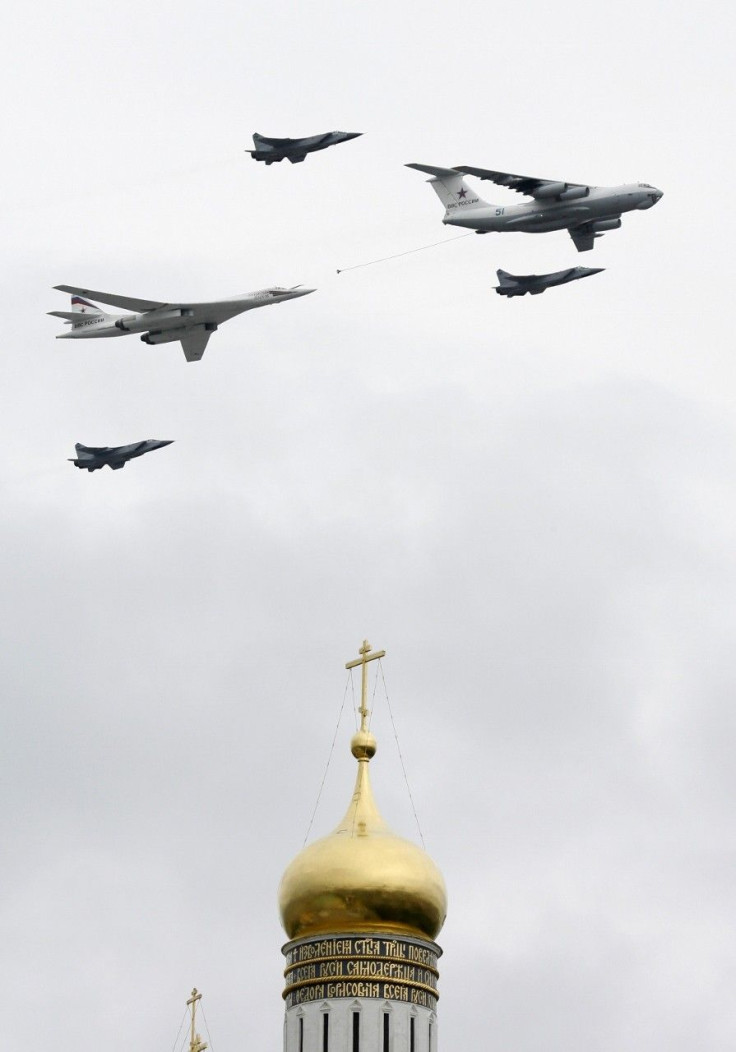Russia’s Plan To Revive ProductionOf Soviet Era Bomber TU-160 Worries USA

Russia’s plan to revive production of the Tu-160, a Soviet-era bomber, also known as "Blackjack" has raised concerns as well as surprise in the U.S. defense circles. Recently, Russian defense minister Sergei Shoigu announced the details about its revived production plans. The Tu-160 is considered special and lethal because it is a nuclear platform, and is similar to the American B-1 bomber, capable of delivering nuclear weapons at long distances. The Soviet Union built 35 of them in the 1980s, of which 15 are still in service.
Russia’s Plans
The decision followed Russian Defence Minister Sergei Shoigu having authorised a study to asses the prospects of restarting the production of the Tupolev Tu-160 'Blackjack' supersonic strategic bomber aircraft. "We shall start to solve problems related not only to maintenance and modernisation of Long-range Aviation's aircraft fleet, but also to Tu-160 production," Shoigu said during a visit to the S. Gorbunov Kazan aircraft plant, where the aircraft are built.
The Russian minister called the Tu-160 a unique aircraft that had proved itself for several decades and said “its structural capabilities have yet to be realised to full extent.” The Russian Air Force has 16 Tu-160 bombers in its fleet and more are being upgraded to Tu-160M standard.
As part of the upgrade work, the air force will receive two Tu-160, strategic bombers and 12 Tu-22M3 'Backfire-C' long-range bombers in 2015, disclosed the defence ministry's information department. By 2020, 10 more upgraded Tu-160Ms will be released to the force. This is in addition to the new-generation strategic bomber being developed by Russia, known as the Prospective Aviation Complex for the LRA with a scheduled first flight set to take place in 2019, with deliveries expected to begin in 2023-2025.
For the U.S. and NATO, militarily Shoigu’s announcement looks like a provocation and a sudden relapse to the Cold War mindset. They know Blackjack as a perfectly capable nuclear bomber which in times of war can fold back its swan-like wings and dart toward targets at supersonic speed. Once it is in the target’s range, it can do an avalanche on the targets with cruise missiles. Its U.S. counterpart, American B-2 is more lethal as it can penetrate farther into enemy airspace without ever being detected.
Reasons For Revival
A report in National Interest has analysed the reasons why Russians wanted to revive TU 160s. It says it is the result of a combined pull of nuclear infrastructure and military’s pride in the symbols of nuclear power. Making more nuclear toys makes many people happy. Economically, Russia’s vast nuclear military-industrial complex also gains with sustained jobs and money flow. The military also gets a security blanket and Russian leaders like Vladimir Putin and Shoigu derive an ego satisfaction for making a deterrence against any “nuclear savagery by the U.S.” Of course, many foreign-policy experts also see Mr Putin’s aggressiveness having been precipitated by NATO’s expansion along Russian borders and adding a fillip to Russian nationalists cause.
The report speculates that by the renewed production of fighters and bombers, Russia is trying to scare Europe not America. By showing the Tu-160, Kremlin is attempting to scare the Europeans more.
Answer With Conventional Forces
The report argues that the right reply to Russia is to augment extra conventional forces by NATO and not using any nuclear threats. The report quotes U.S. ambassador to Ukraine, Steven Pifer, who argues that Russians know that the Cold War equation is passé and their erosion of conventional power is a reality. The report also says notwithtanding Shoigu’s plan to build more bombers, Russian leaders are aware that any attack on NATO will invite a heavy conventional loss for Russia and it has reason to rethink whether to shoulder the same escalatory burden that once haunted NATO.
(For feedback/comments, contact the writer at k.kumar@ibtimes.com.au)





















